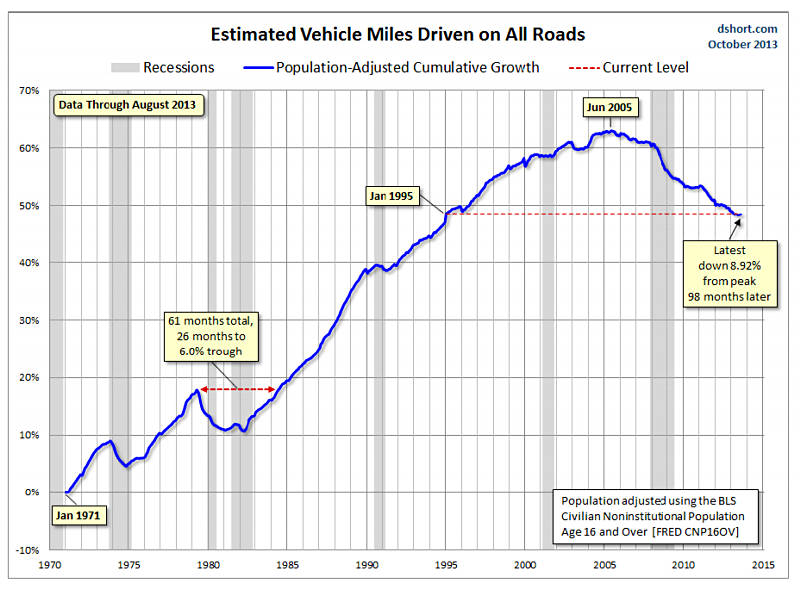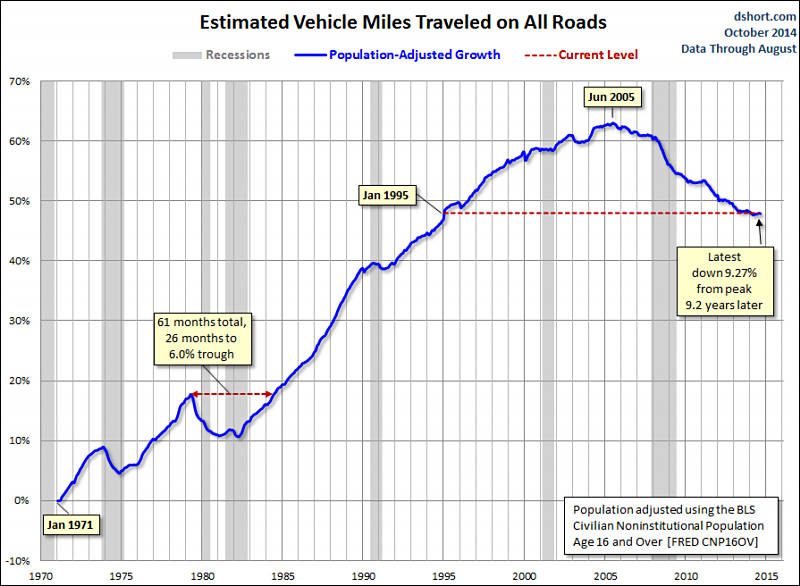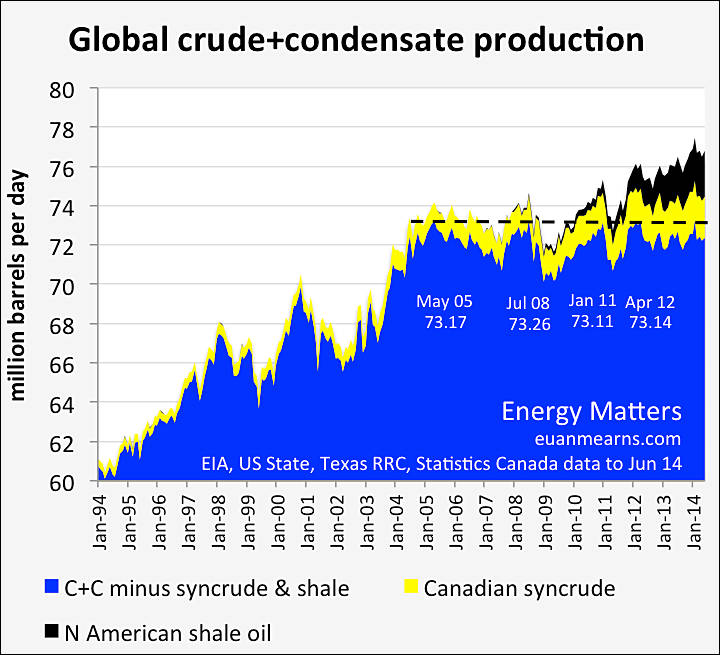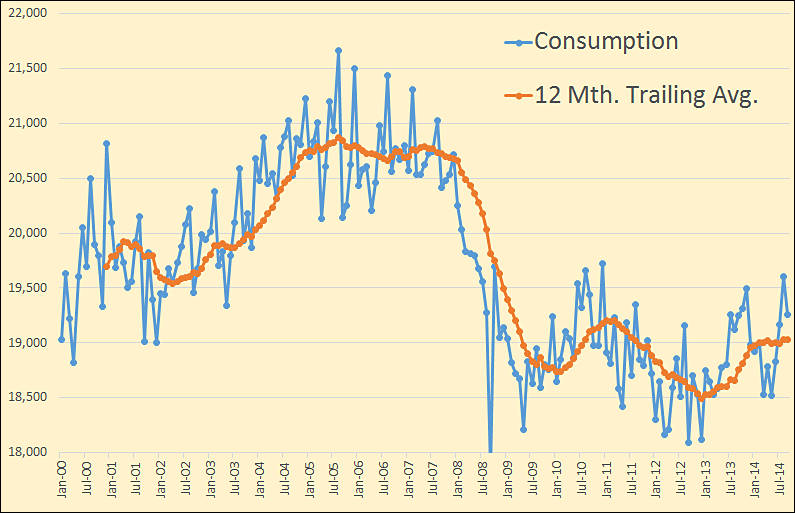
It allows to keep PV going, with more focus towards AI, but keeping be one of the few truly independent places.
-

 nhk17.jpg800 x 589 - 90K
nhk17.jpg800 x 589 - 90K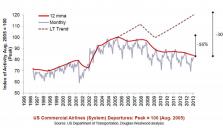
 nhk18.jpg800 x 459 - 57K
nhk18.jpg800 x 459 - 57K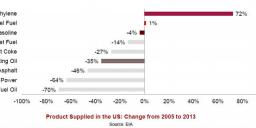
 nhk19.jpg800 x 321 - 31K
nhk19.jpg800 x 321 - 31K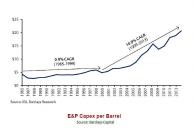
 nhk20.jpg685 x 452 - 36K
nhk20.jpg685 x 452 - 36K -
Here is a key fact that casts doubt on the official reporting: When the industry and the government talk about the price of oil sold on world markets and traded on futures exchanges, they mean one thing. But, when they talk about the total production of oil, they actually mean something quite different--namely, a much broader category that includes all kinds of things that are simply not oil and that could never be sold on the world market as oil.
Basically, crude oil peaked [in 2005], but natural gas and natural gas liquids [including lease condensate] didn't," he believes. Natural gas production has continued to grow, and as it has, its coproducts have also grown--many of which have been lumped in with the oil production statistics
So, if oil production hasn't really been growing or at least not growing much in the last several years, what's all the hoopla about? As petroleum geologist and consultant Art Berman likes to say, it's a retirement party. There is one last, very difficult, costly and energy-intensive store of oil in low-quality deep shales containing crude. These shales--which are accessed using hydraulic fracturing or fracking--would never have been tapped if we were not already seeing a decline in the production of conventional, easy-to-get crude oil.
Despite what the public is being led to believe, oil wells in deep shales suffer from very high annual production decline rates--40 percent per year compared to the worldwide average of 4 percent. This implies that swiftly rising production will be followed by equally swiftly declining production in a compressed time frame--a classic boom-bust pattern.
Okay, so what do the worldwide oil production numbers actually look like if we strip out all the non-oil components?
.
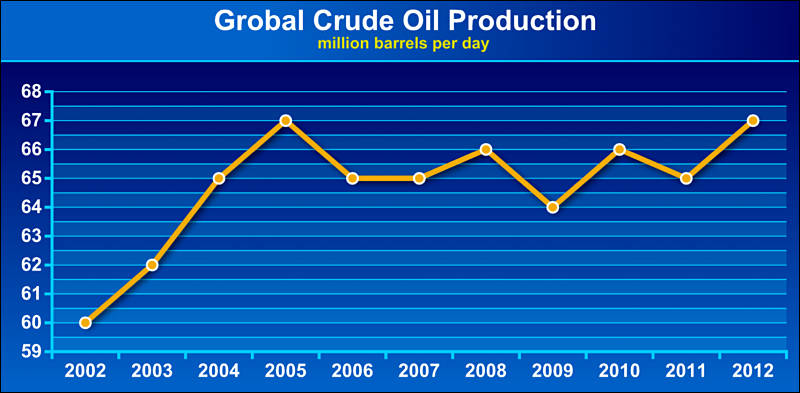
The reason for the seeming stall in world oil production is actually quite simple. The remaining oil is harder to extract. We've taken the easy oil out of the Earth first. He explains that in the seven years ending in 2005, the oil industry invested $1.5 trillion on finding and developing new oil and natural gas fields and the capacity to refine and distribute the products that come from them. During that period oil production consistently rose. In the seven years after 2005 the industry spent $3.5 trillion for no net increase in the production rate of actual, honest-to-god crude oil
http://www.csmonitor.com/Environment/Energy-Voices/2014/0416/Has-crude-oil-production-already-peaked

 sales90.jpg800 x 393 - 71K
sales90.jpg800 x 393 - 71K -
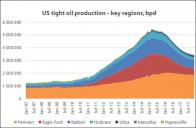
 img805.jpg647 x 422 - 38K
img805.jpg647 x 422 - 38K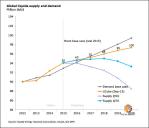
 img807.jpg596 x 512 - 36K
img807.jpg596 x 512 - 36K -
Positive news from Asia
"We estimate 2016 production of 7.5 million barrels per day will fall by over a million barrels per day by 2020," said Angus Rodger, the energy consultancy's Asia-Pacific upstream research director.
China, Indonesia, Malaysia and Thailand are among the biggest producers in Asia but the near having of crude oil prices since 2014 has hit the industry and resulted in an annual average base decline rate of around 7 percent within existing oil fields
Howdy, Stranger!
It looks like you're new here. If you want to get involved, click one of these buttons!
Categories
- Topics List23,992
- Blog5,725
- General and News1,355
- Hacks and Patches1,153
- ↳ Top Settings33
- ↳ Beginners256
- ↳ Archives402
- ↳ Hacks News and Development56
- Cameras2,367
- ↳ Panasonic995
- ↳ Canon118
- ↳ Sony156
- ↳ Nikon96
- ↳ Pentax and Samsung70
- ↳ Olympus and Fujifilm101
- ↳ Compacts and Camcorders300
- ↳ Smartphones for video97
- ↳ Pro Video Cameras191
- ↳ BlackMagic and other raw cameras116
- Skill1,960
- ↳ Business and distribution66
- ↳ Preparation, scripts and legal38
- ↳ Art149
- ↳ Import, Convert, Exporting291
- ↳ Editors191
- ↳ Effects and stunts115
- ↳ Color grading197
- ↳ Sound and Music280
- ↳ Lighting96
- ↳ Software and storage tips266
- Gear5,420
- ↳ Filters, Adapters, Matte boxes344
- ↳ Lenses1,582
- ↳ Follow focus and gears93
- ↳ Sound499
- ↳ Lighting gear314
- ↳ Camera movement230
- ↳ Gimbals and copters302
- ↳ Rigs and related stuff273
- ↳ Power solutions83
- ↳ Monitors and viewfinders340
- ↳ Tripods and fluid heads139
- ↳ Storage286
- ↳ Computers and studio gear560
- ↳ VR and 3D248
- Showcase1,859
- Marketplace2,834
- Offtopic1,319


